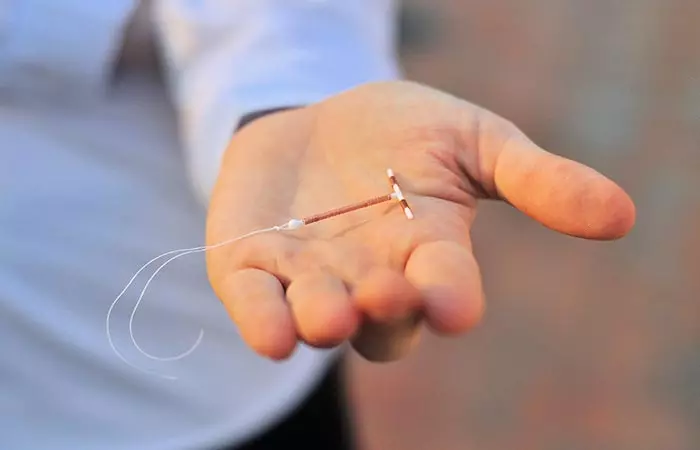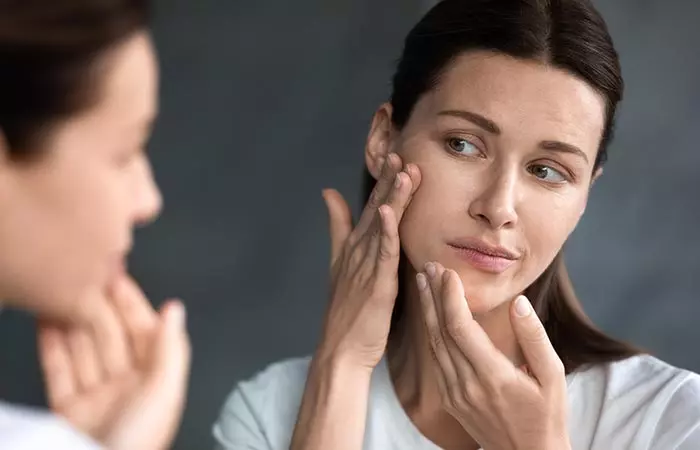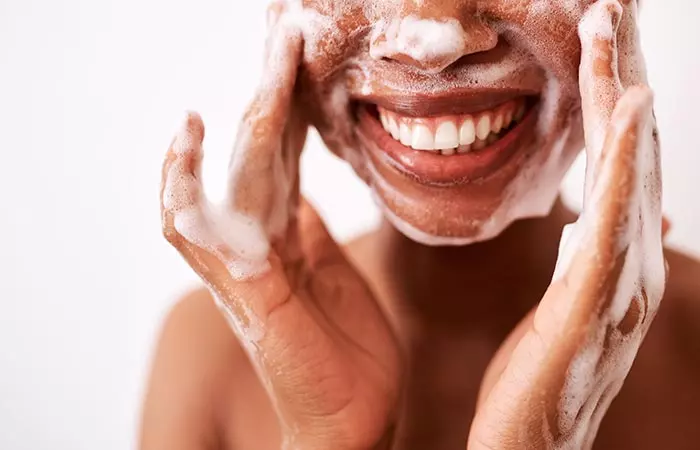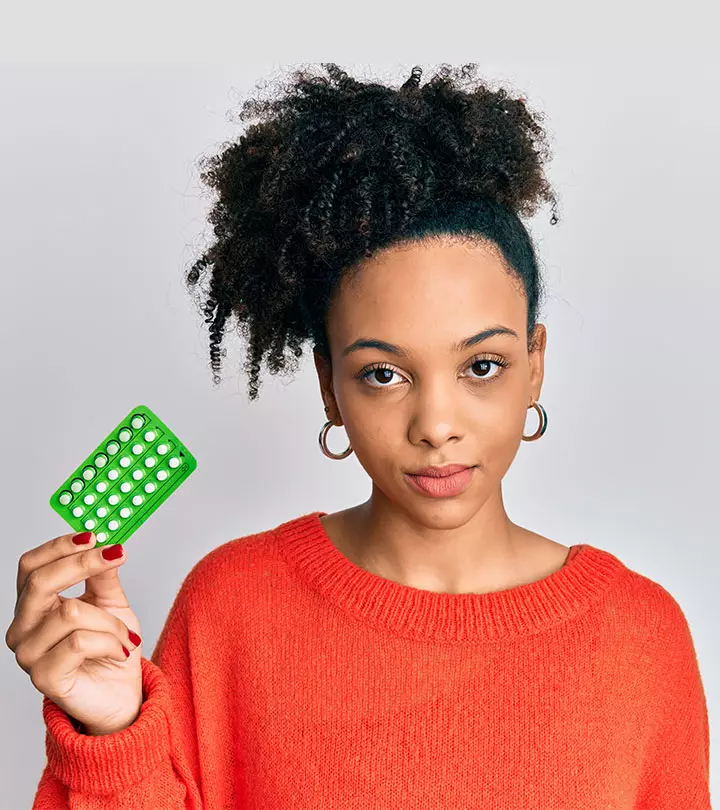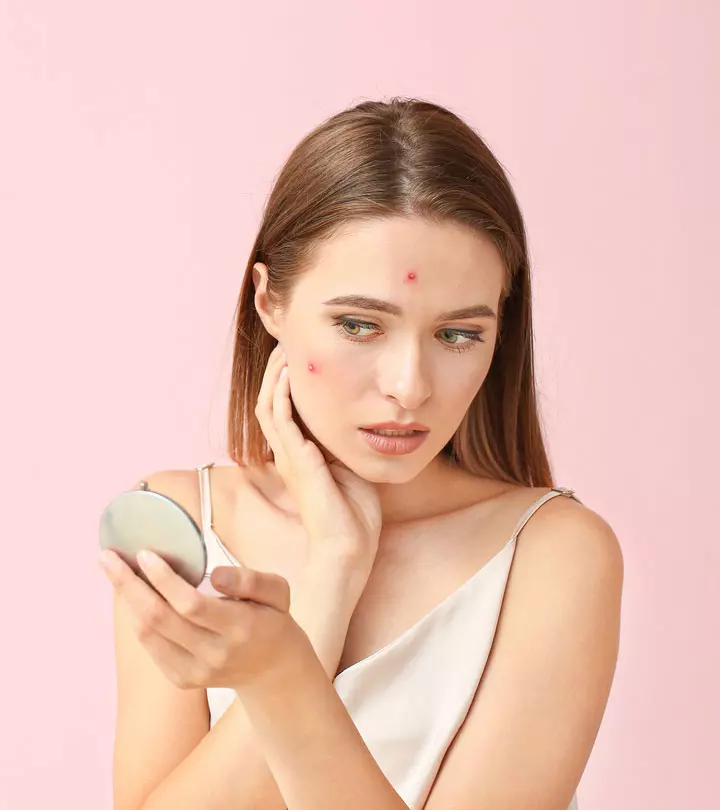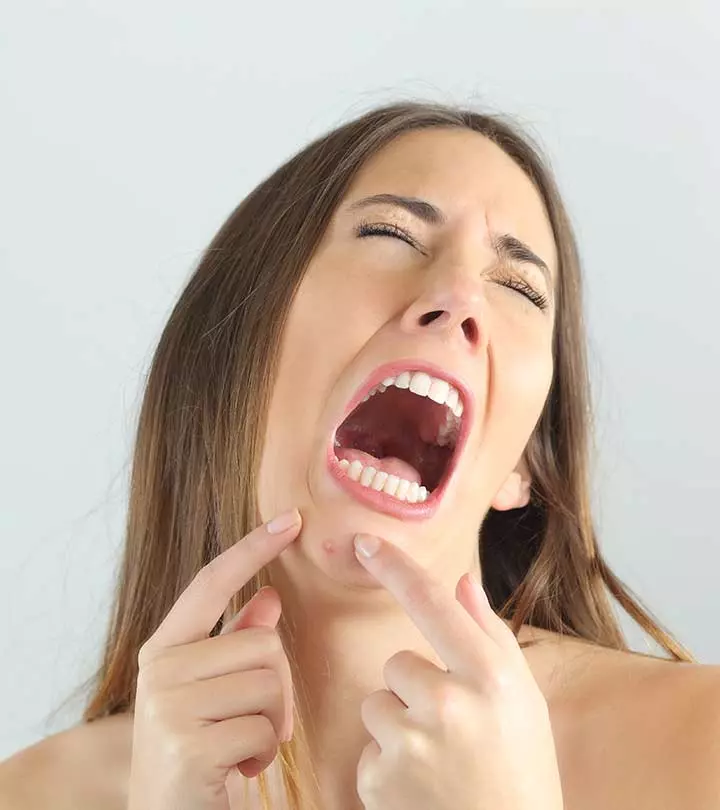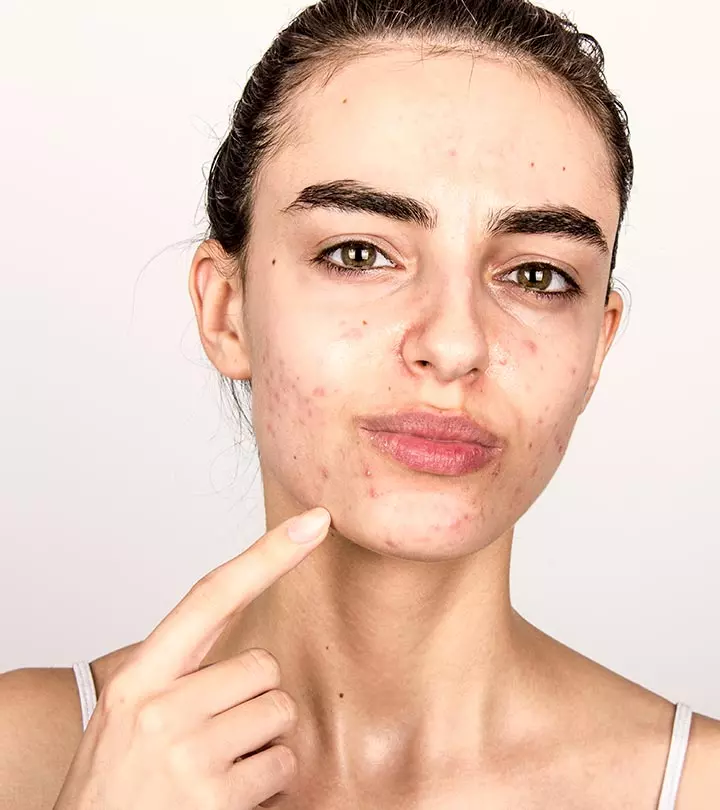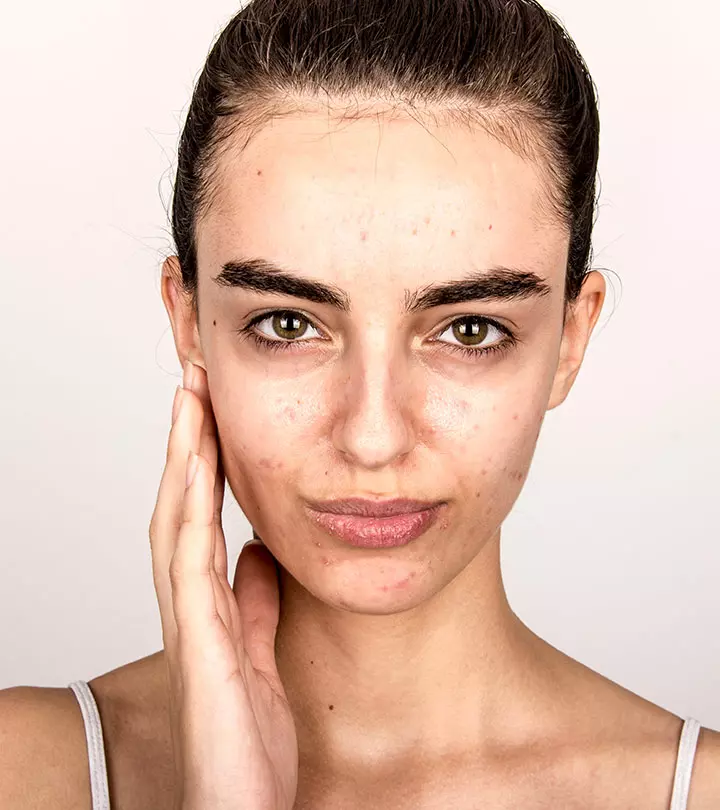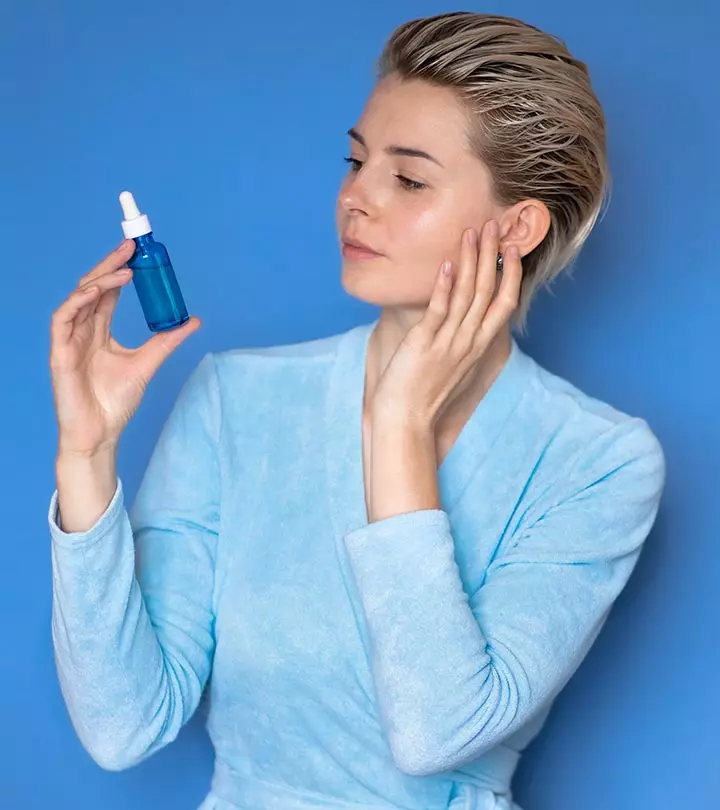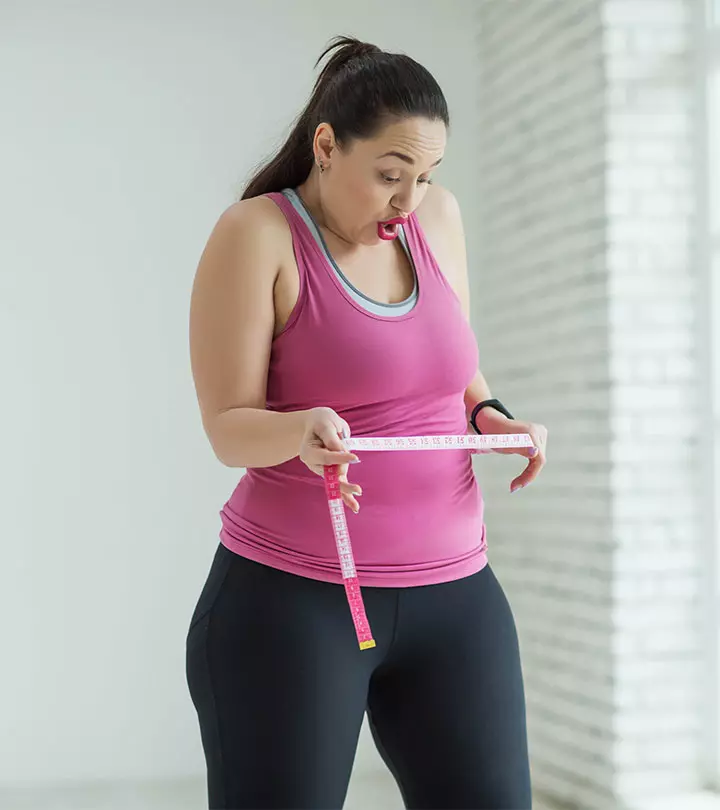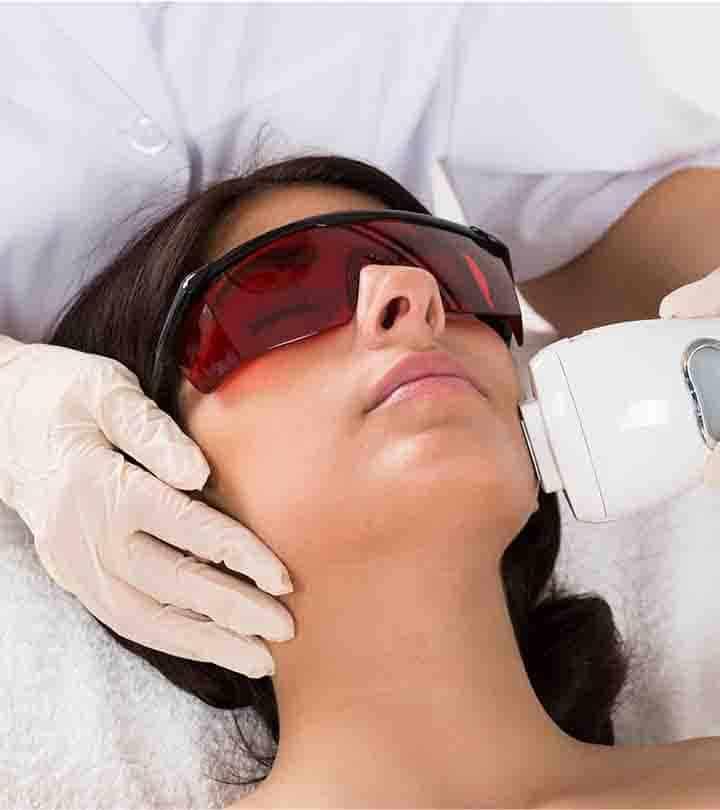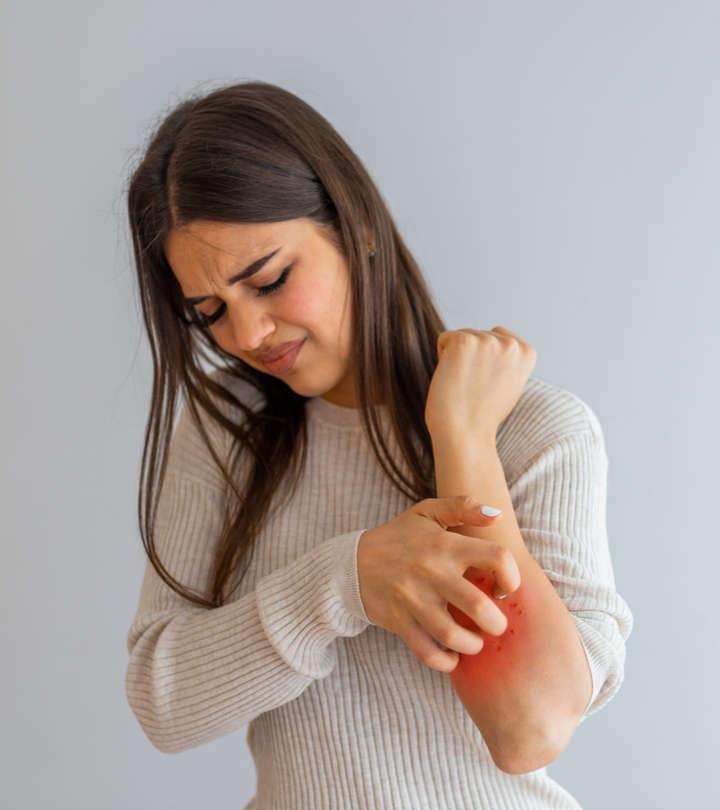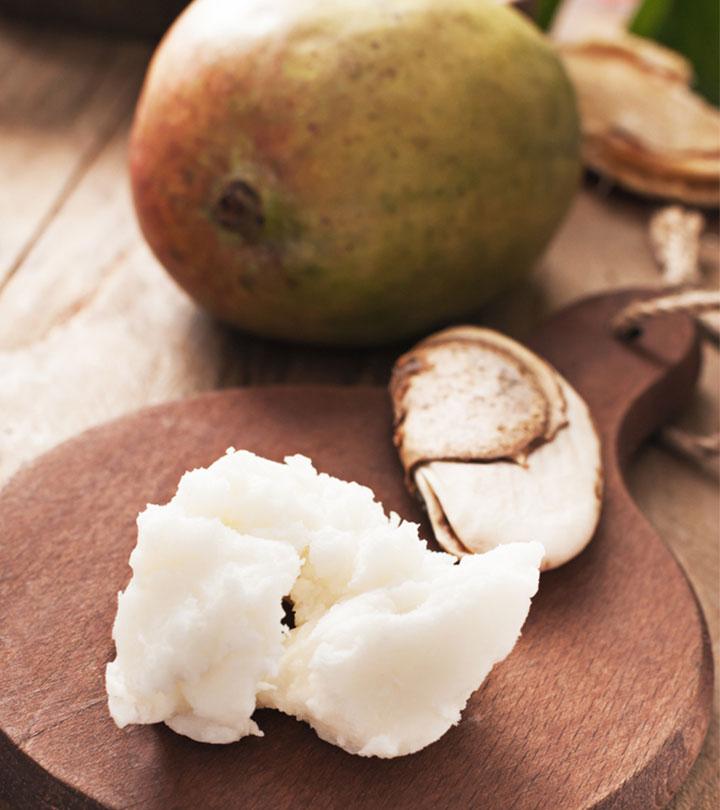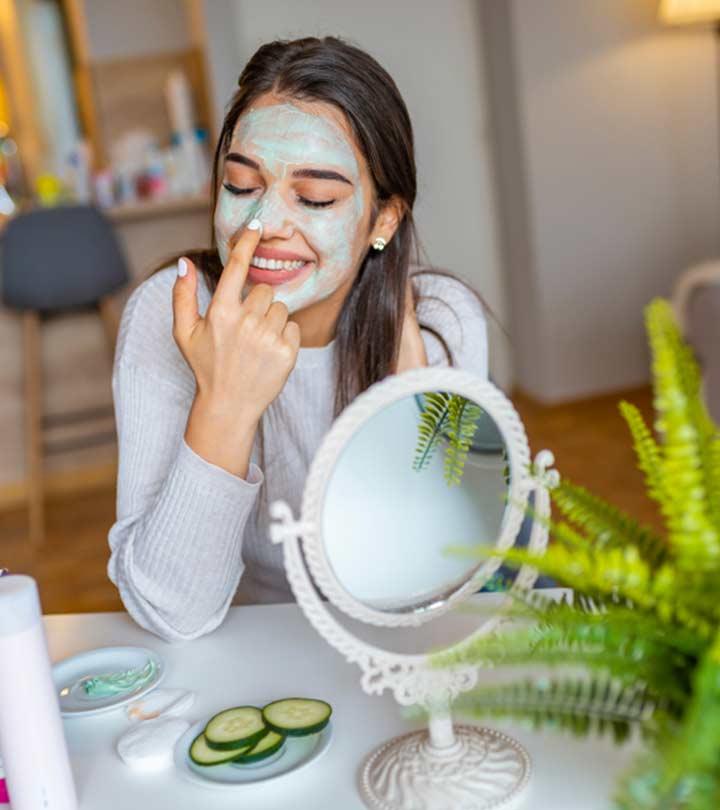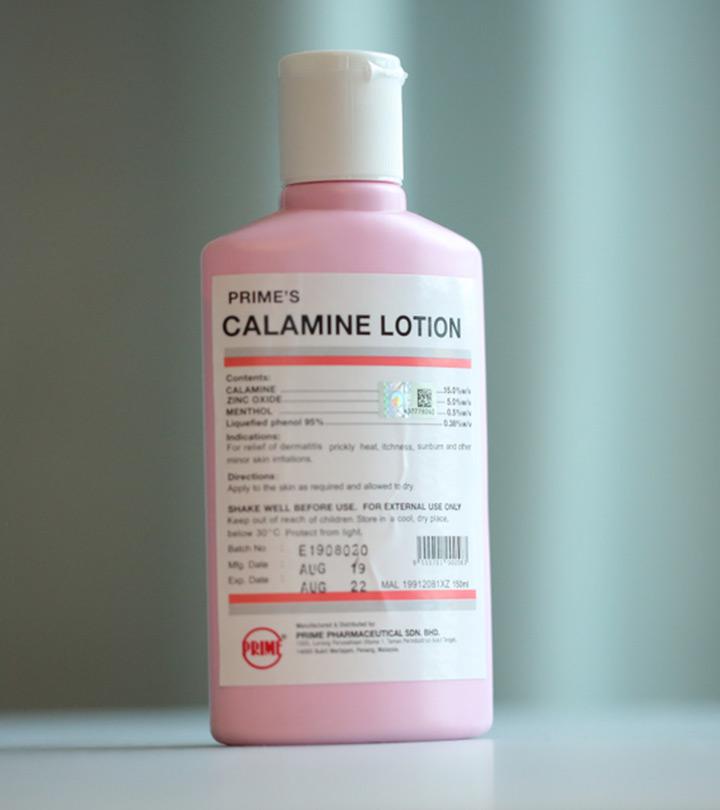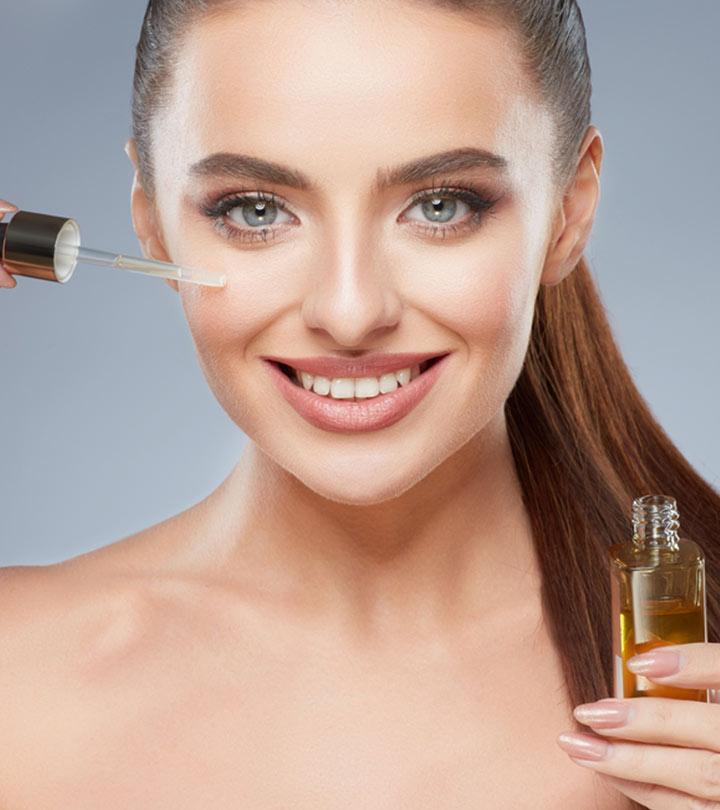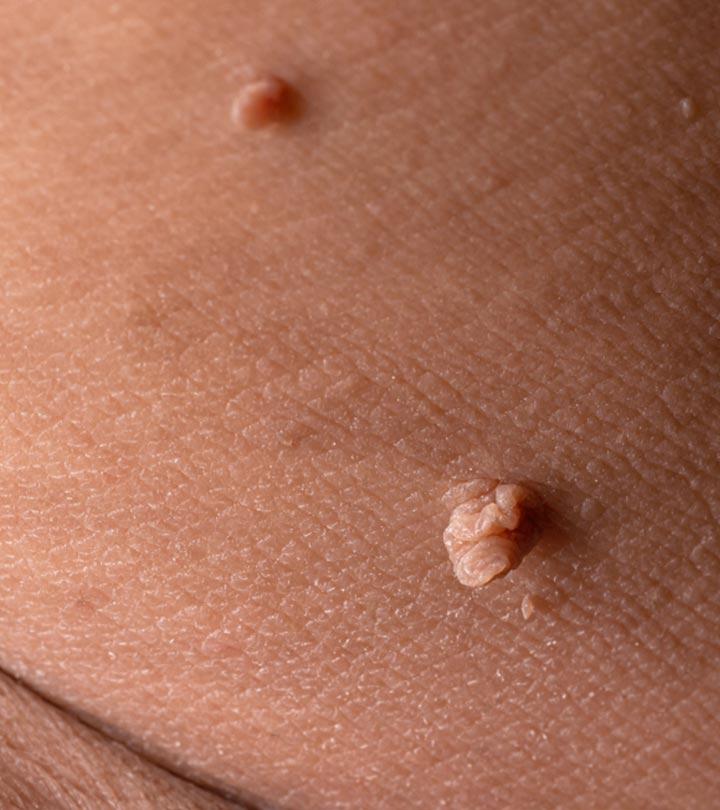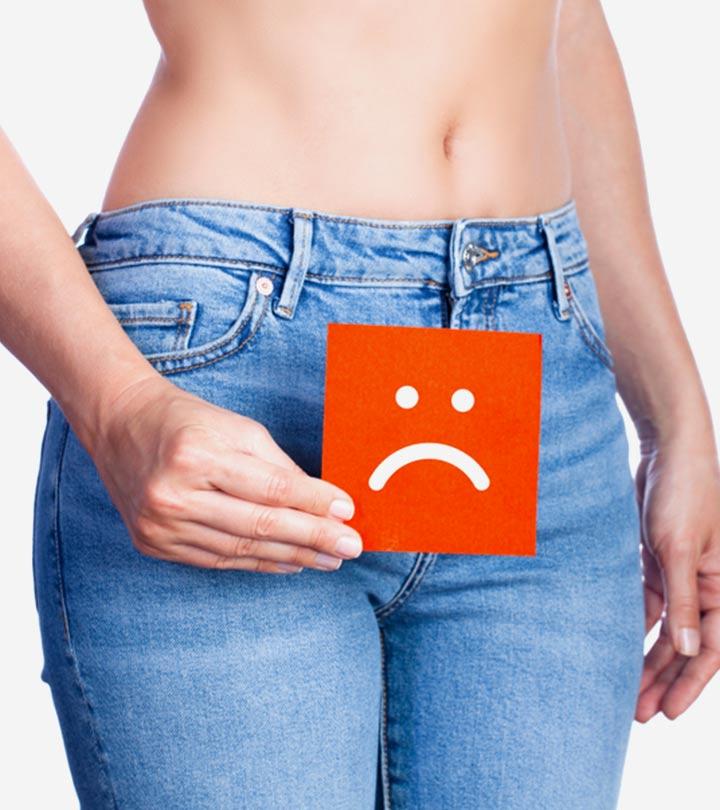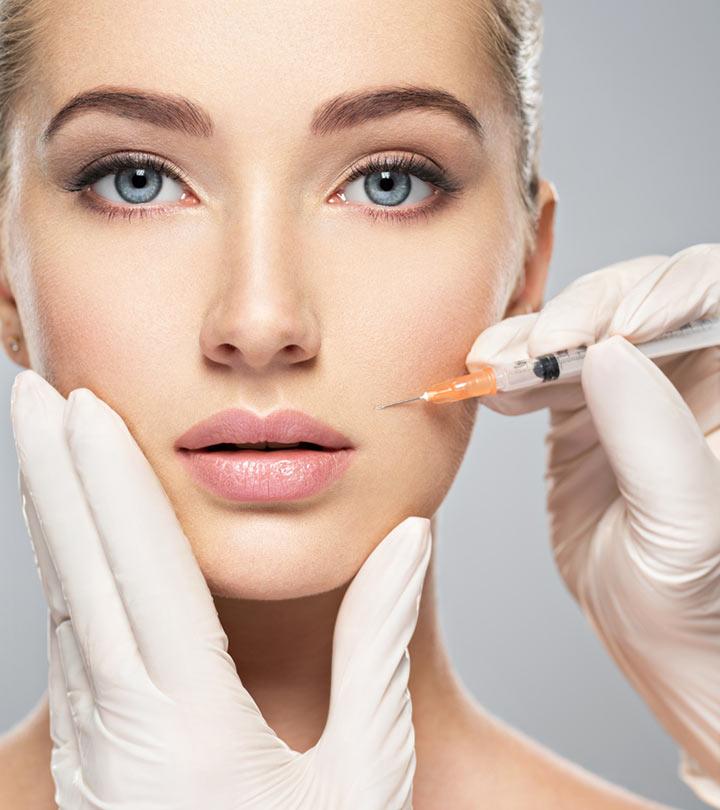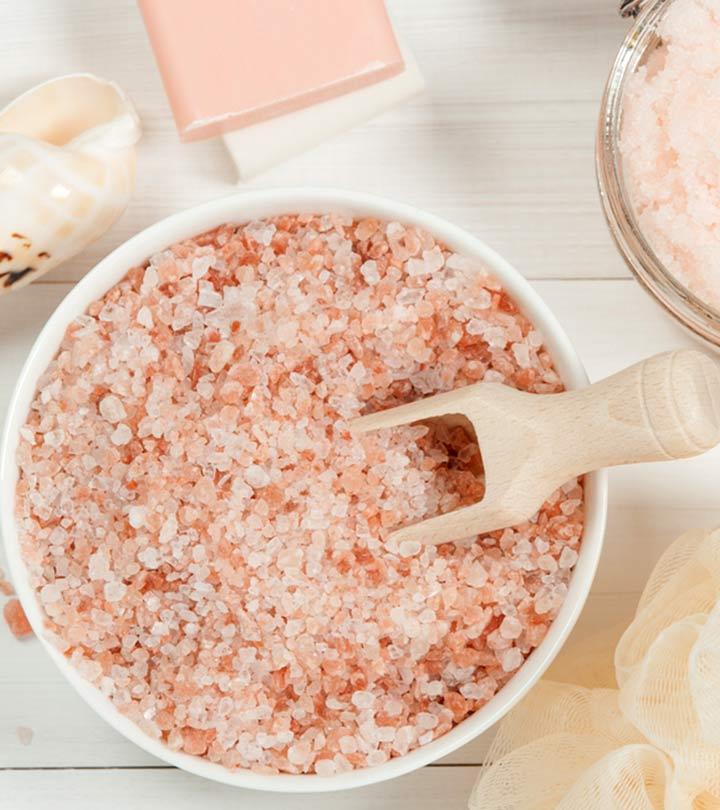IUD And Acne: Causes And How To Prevent It
Using this form of birth control may have a big impact on your skin's appearance.
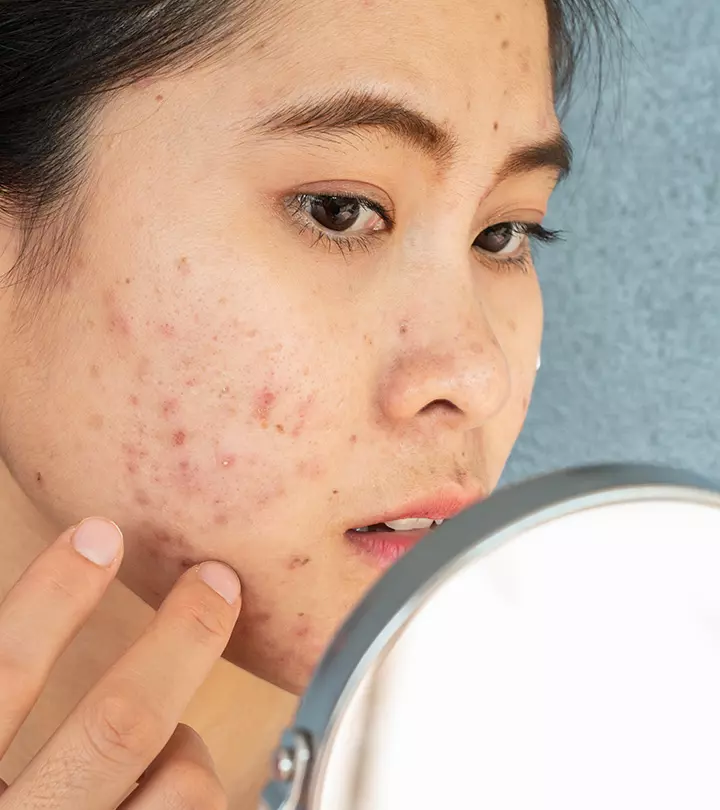
Image: Shutterstock
Is there a connection between IUDs and acne? Intrauterine devices (IUDs) are an effective method of long-term birth control. They are a low-maintenance, convenient form of contraception that lasts anywhere from three to ten years, depending on the brand. While some people are convinced they treat acne, there have been reports of IUDs triggering acne breakouts. Learn everything there is to know about the link between IUDs and acne right here!
In This Article
What Is An IUD? What Does It Look Like?
Intrauterine devices (IUDs) are a popular form of birth control. They work by preventing the sperm from fertilizing the egg, hence reducing the chances of pregnancy. The popularity of IUD is a result of its effectiveness. The chances of getting impregnated with an IUD is less than a percent. They also have the least possibility of human error as compared to other forms of contraception like condoms, birth control pills, etc. (1).
An IUD is usually a T-shaped, quarter-sized plastic device fitted through the cervical canal and the uterus cavity. It can be left in anywhere between 3 to 10 years. IUDs are classified on the basis of whether they have copper wiring around the plastic or contain progestin, which is a synthetic version of the hormone progesteronei Female sex hormones that are produced in the ovaries and are responsible for supporting pregnancy and the menstrual cycle. .
According to a survey by the National Survey of Family Growth (NSFG) in 2017-2019, 65.3 % of women in the 15-49 age group were using contraception. Out of which, 10.4% used long acting reversible contraception (LARCs) like IUDs as contraception. LARC use was high among women between 20-29 with 13.7% and 12.7% for women between 30-39.
 Trivia
TriviaLearn about the different types of IUDs in the next section.
What Are The Types Of IUDs?
There are two main types of IUD:
1. Non-Hormonal IUD
Non-hormonal IUD is popularly known as Copper T and do not contain hormones. As its name suggests, it uses copper for its contraceptive function and does not allow the sperm to fertilize the egg, thus preventing pregnancy. Copper IUDs also work as an emergency contraceptive. The most well-known and approved Copper T brand is ParaGard.
2. Hormonal IUD
Hormonal IUDs release a hormone called progestin that makes the cervical mucus thick in consistency. This makes it difficult for the sperm to reach the egg for fertilization. Moreover, progestin helps in thinning the uterus lining for double protection.
The most popular brands of hormonal IUD are:
- Mirena
- Skyla
- Liletta
- Kyleena
Now, let’s move on to the most important question.
Do IUDs Clear Up Or Actually Cause Acne?
IUDs stir up controversy when it comes to their relationship with acne. They have mixed reviews amongst their users. Some women who have used copper IUDs claim to have not shown any reaction of acne breakouts or flare-ups. It could be because copper IUDs do not contain hormones like progestin the way hormonal IUDs do.
A lot of the talk regarding acne is related to hormonal IUDs, which contain hormones like progestin (that converts into progesterone) and different types of testosteronei Primary sex hormones that are produced in the testicles and are responsible for the development of male reproductive organs. that pave the way for cystic acne (2). Progestin may cause excess sebum secretion, which also occurs due to hormonal changes or hormonal imbalances.
Crissy, a blogger, shared her journey dealing with acne and its relationship with hormonal changes due to the Mirena IUD. She recounted her acne struggles since puberty and the various methods she tried to manage them, including birth control pills, which worsened her acne. When her second IUD was about to expire, she did some research on IUD after which she said, “I made the decision to not have a third IUD (i).” She went on to say, “I am au natural now. No IUD, no artificial hormones. Annnnnnnnddddd…..no acne.”
There have been cases where women with no history of acne experienced a sudden acne breakout after getting an IUD. After the removal of the IUD, their skin cleared up and stopped showing any acne signs (2). However, it is important to remember that not a lot of research has been conducted on the link between IUDs and acne, so we cannot draw a concrete conclusion.
Understanding The Connection Between IUDs And Acne
The possibility of an acne reaction caused by an IUD is low, but there are exceptions. Women who change their birth control method from oral contraceptives to IUD may experience acne breakouts. Birth control pills usually containestrogeni A group of female sex hormones responsible for the development of the reproductive system and secondary sex characteristics in women. and progestin, which work in combination to reduce acne. Switching to an IUD that only contains progestin may cause your skin to produce too much oil and may cause breakouts. However, there is no scientific evidence to prove the same.
Also, women who get breakouts before their periods may experience acne after the insertion of the IUD.
Here are the different types of IUD and their risks associated with acne:
- Copper IUDs: Copper IUDs do not cause acne after insertion. Since they are free from hormones, the chances of breakouts or aggravation of acne are lower.
- Hormonal IUDs: Hormonal IUDs could be challenging for women who already have acne. People with acne are found to have larger sebaceous glands and are affected by hormones like testosterone and androgen. Hormonal IUD contains progestin, which tends to give rise to androgenic activities. This leads to excess oil production, clogging of pores, and a sudden acne flare-up (2).
Many women wrongly conclude that their breakouts are a result of their IUD. Learn how to figure if a breakout is caused by acne below.
Identifying The Symptoms Of An IUD Breakout
To get a deeper understanding of the link between acne and an IUD, we must learn to recognize whether a breakout is the outcome of an IUD.
One of the ways to do so is by looking at the location and condition of your acne. If you find acne formations around your chin and jaw, then IUD may be a contributing factor.
Another sign would be the development of cystic acne when you have no history of acne in the past.
It is claimed that if your breakouts are linked to the insertion of an IUD, then you may see a significant decrease in their severity over time. But, if you were already had acne pre-insertion of the IUD, then its severity will not change. It will still persist the way it was before. However, it is important to note that there is absolutely no scientific evidence to prove any of these claims.
Now, let’s talk about how you can treat hormonal acne caused by an IUD.
How To Get Rid of Hormonal Acne Caused By An IUD
If your acne is linked with the insertion of an IUD, here are some things you can do to treat and prevent further hormonal breakouts:
1. Skin Care
A good skin care regimen can help you tackle your hormonal acne caused by an IUD. It is important to take constructive steps and enhance your skin care routine (3). You can incorporate the following steps in your skin care routine:
- Cleanse your face thoroughly twice a day.
- Try not to pick on your pimples or areas of inflammation.
- Experiment with chemical exfoliants. Using a chemical exfoliant once a week can help in unclogging your pores. After all, clogged pores are one of the main causes of acne.
- Use products containing retinol as they help in promoting collageni The main protein in the body that provides support and structure to the connective tissues, skin, and bones. production, replacing old skin cells with new ones, and improving the overall texture of the skin (3).
2. Diet
Understanding that what you put into your body reflects on your skin is an old philosophy passed down through the ages. Making some changes in your diet can help you control your hormonal IUD-induced acne (4).
- Including plenty of vegetables in your diet.
- Cut down on foods that have high sugar content like white bread, soda, chips, etc.
- Add more low-glycemic foods into your diet, like fresh vegetables, beans, and oats.
 Quick Tip
Quick Tip3. Reduce Stress
Psychological stress plays a big hand in hormonal acne. Cortisoli A steroid hormone released by the adrenal glands in the body and known for regulating stress in a dangerous situation. is a hormone that is released in stressful situations. The combination of hormones like progestin, estrogen, and cortisol creates an environment for cystic acne (5). Practice relaxation techniques and yoga to manage your stress.
4. Medication
If changing your routine and lifestyle seems to bring no change, consult a dermatologist and ask them to put you on medicines. Your dermatologist or dermatology expert may prescribe oral medications like isotretinoin or minocycline or topical treatments like retinol, etc. (3).
Infographic: Signs An IUD Is Right For You And Signs It Is Not
Like any other kind of birth control, IUDs are ideal for some people but not for others. When it comes to contraception, your medical history, anatomy, lifestyle, and preferences all play a key role. Hence, be prepared to have a long talk with your doctor to determine whether an IUD is good for you.
Click on the infographic below to get an insight into a few things to think about before your appointment, so you know what an IUD can entail for you and your period. Illustration: StyleCraze Design Team
Intrauterine devices (IUDs) are a popular type of contraceptive device that prevents the fertilization of the egg. These devices can be left in your cervical canal anywhere between 3 to 10 years. Studies suggest a link between hormonal IUDs and acne due to progestin, a hormone that may cause excess sebum production. If IUDs are the cause behind your acne, you can make simple changes to your lifestyle such as a good skincare routine, a healthy diet, and practicing yoga and meditation to treat acne.
Frequently Asked Questions
Can IUDs help with acne?
No, IUD, like hormonal therapy cannot help with acne breakouts. Instead, they may worsen acne.
How long does IUD acne last?
IUD acne may last up to 6 months. Following a proper skincare routine, consuming a healthy diet, and taking acne medications as a part of acne treatment may promote faster healing.
Does IUD removal cause acne?
IUD removal does not cause acne. However, if you already have acne breakouts due to IUD, then it will take a few months for the acne to reduce. If the acne breakout is severe, it might take longer.
Key Takeaways
- Intrauterine devices (IUDs) are a type of birth control that prevents the sperm from fertilizing the egg and reduces the odds of pregnancy.
- When it comes to their link with acne, IUDs are controversial, and their users have mixed feelings about them. Although the chances of an IUD causing acne are slim, there are exceptions.
- If your acne is caused due to the insertion of an IUD, you can treat and prevent recurrent hormonal outbreaks by following a proper skin care regimen. Making dietary adjustments and reducing stress can also help.
Get to know the facts about IUDs and learn about potential hormonal changes like mood swings, acne, and irregular periods. Click on this video to make an informed decision about your contraceptive accordingly.
Personal Experience: Source
StyleCraze's articles are interwoven with authentic personal narratives that provide depth and resonance to our content. Below are the sources of the personal accounts referenced in this article.
i. IUD and Acne: A Quick Storyhttps://chrissyscreativecreations.wordpress.com/2018/03/26/iud-and-acne-a-quick-story/
References
Articles on StyleCraze are backed by verified information from peer-reviewed and academic research papers, reputed organizations, research institutions, and medical associations to ensure accuracy and relevance. Read our editorial policy to learn more.
- Intrauterine Device
https://www.ncbi.nlm.nih.gov/books/NBK557403/ - Acne vulgaris in connection with the use of progestogens in a hormonal IUD
https://pubmed.ncbi.nlm.nih.gov/14619207/ - The Role of Skin Care as an Integral Component in the Management of Acne Vulgaris
https://www.ncbi.nlm.nih.gov/pmc/articles/PMC3997205/ - Right Diet for Acne
https://www.aad.org/public/diseases/acne/causes/diet#:~:text=A%20low%2Dglycemic%20diet%20may%20lead%20to%20fewer%20pimples&text=Findings%20from%20small%20studies%20suggest - Study of psychological stress sebum production and acne vulgaris
https://pubmed.ncbi.nlm.nih.gov/17340019/
Read full bio of Dr. CP Thajudheen
Read full bio of Ramona Sinha
Read full bio of Monomita Chakraborty





